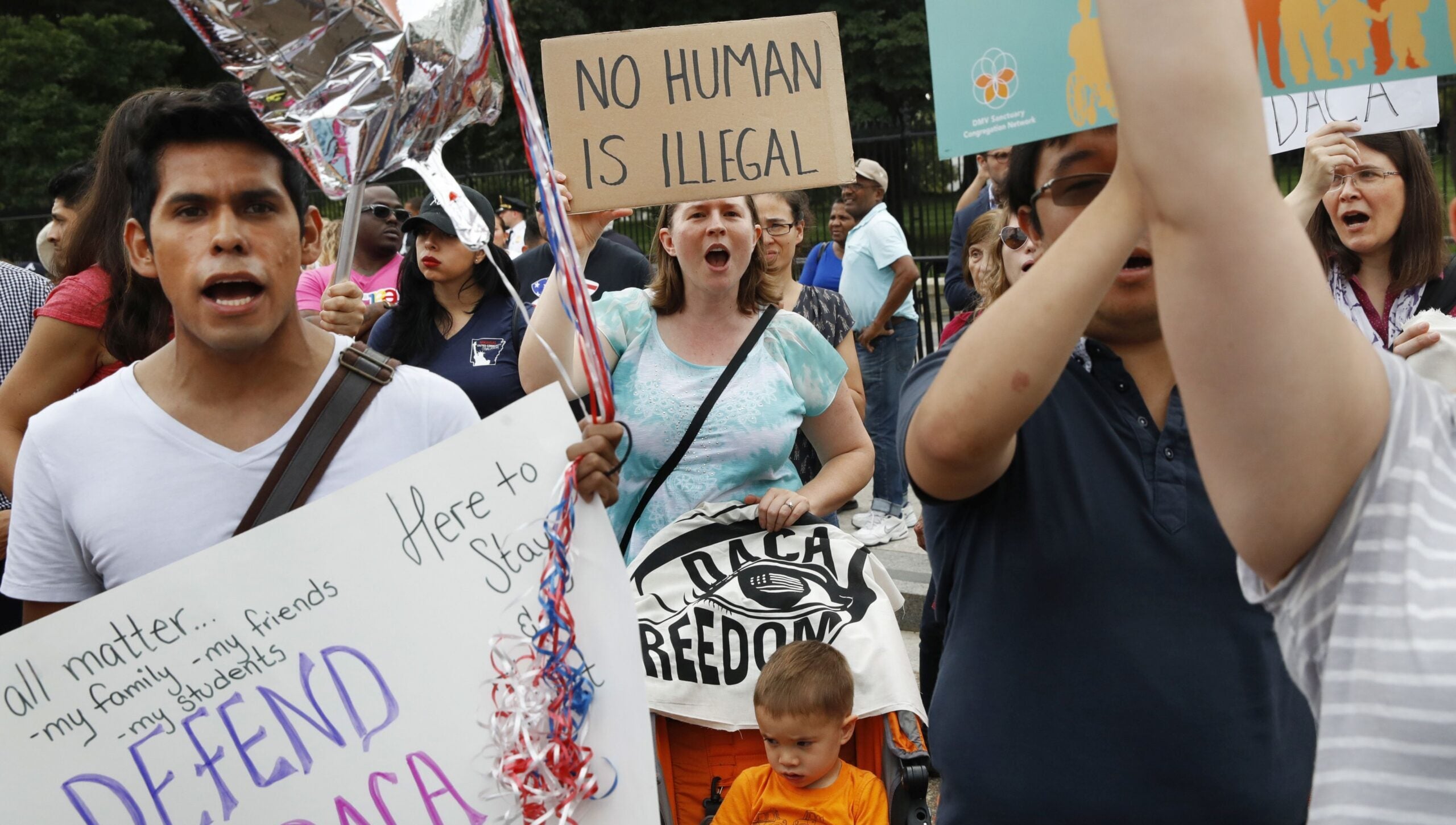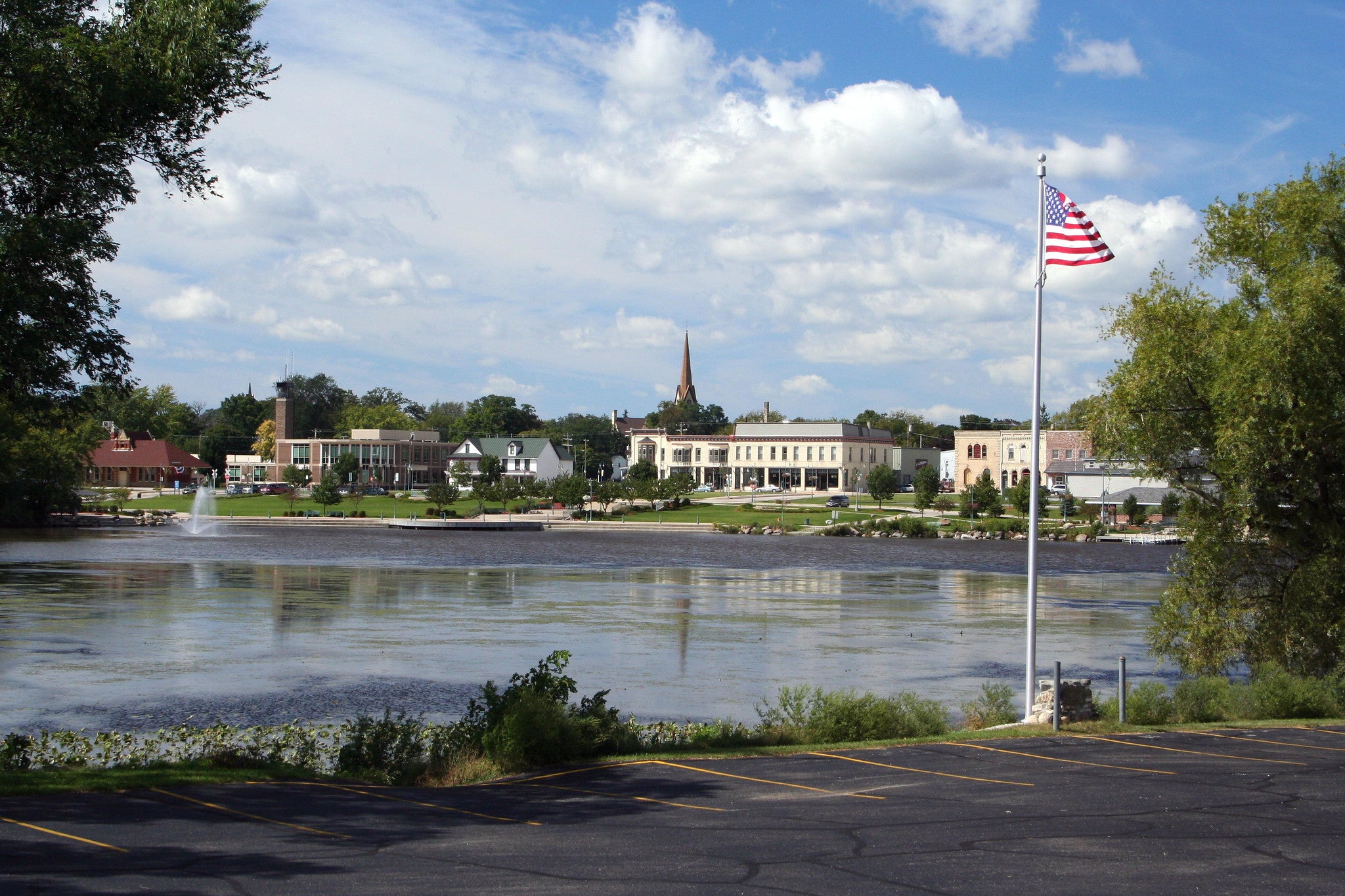Texting and messenger apps have made it extremely easy to bail on plans, turning us into a generation flakes, says our guest.We talk about why we love to cancel plans. We also discuss a new report from UW-Madison that looks at levels of crime in correlation to undocumented immigrant populations and take a look at a lawsuit from Illinois over federal air quality requirements in southeastern Wisconsin.
Featured in this Show
-
Illinois A.G. Announces Suit Over Air Quality In Southeastern Wisconsin
Illinois Attorney General Lisa Madigan announced a lawsuit challenging a ruling from the U.S. Environmental Protection Agency over the agency’s decision to exempt four counties in southeastern Wisconsin from stricter ozone requirements. We talk to an environmental reporter about the lawsuit and what it could mean for the planned Foxconn plant in Racine.
-
Study: Illegal Immigration Linked To Decrease In Violent Crime
Making a case for tighter security at the border, President Donald Trump has often linked illegal immigration with increased crime.
But a new study from University of Wisconsin-Madison sociology professor Michael Light suggests people living in the country illegally are linked to a decrease in violent crime, not an increase.
The study, published in March in the journal Criminology, is one of the first on the topic, Light says.
“Up until recently, we really haven’t had reliable information on the size of the undocumented population,” he said.
Light used immigrant population data from the nonpartisan Pew Research Center and the Center for Migration Studies.
He then compared that with violent crime data as identified by the FBI: murder, rape, aggravated assault and robbery.
The population of immigrants without legal permission living in the United States more than tripled between 1990 and 2014. But Light found the increase was correlated with a decrease in murder, rape, aggravated assault and robbery.
Light said there are logical reasons to believe people living in the country illegally could be associated with an increase in crime, they often have higher rates of poverty and lower educational attainment than the average U.S. citizen. These are also traits typically associated with increased crime.
However, those immigrating illegally have reason to avoid the criminal justice system, for fear of being deported.
There’s also the “selection effect.” This is an idea Harvard University sociology professor Robert J. Sampson wrote about in the New York Times back in 2006.
“Undocumented immigrants often come here seeking things like educational opportunities, employment opportunities,” Light said. “And undocumented immigration, in all candor, requires a tremendous amount of motivation and planning. So to the extent that those characteristics, hard work, motivation, determination, those things tend not to be very highly correlated with having a high criminal propensity.”
Light’s study also looked at reported crimes to the FBI. Media outlets have reported that some immigrants are too scared to report crime for fear they’ll be deported.
But Light said his analysis was supplemented with data from the National Crime Victimization Survey, which specifically takes into account crimes that are not reported to authorities. That suggested crimes weren’t simply underreported, he said.
His study was a broad look at immigration and crime. But much of the rhetoric around immigration policy involves so-called “sanctuary cities.” There’s no legal definition, but the phrase generally refers to cities that limit cooperation with federal law enforcement of immigration law.
“Every day, sanctuary cities release illegal immigrants and drug dealers, traffickers, and gang members back into our communities,” Trump said in a March speech on the opioid crisis.
But other studies have suggested that on the city level, cities with “sanctuary” policies are also associated with a decrease in violent crime.
Immigrants living in the country illegally also aren’t necessarily linked with drug trafficking from the Mexico border either. In a different study last summer, Light found increased immigration without legal permission was correlated with fewer DUI arrests, drug arrests and drug deaths.
-
Study Finds Undocumented Immigration Doesn't Lead To More Violent Crime
The relationship between undocumented immigration and violent crime has been one of the most hotly debated political topics of the last several years, and a new UW study is shedding some light on the numbers behind it. It finds that areas with more undocumented immigrants actually have less violent crime. The lead researcher joins us to break down the details.
-
Why We Love To Cancel Plans
Technology has made it much easier to cancel plans without having to tell someone face-to-face, or even over the phone. But while bailing on friends has become more common, a social psychologist explains that when we are on the receiving end, it still has a big impact on us.
-
Bail Much? Expert Says It's Better To Stick To Your Plans
Regan Gurung has some pithy advice for those thinking about canceling upcoming plans. Don’t.
“Just go out and do it,” said Gurung, a Ben J. & Joyce Rosenberg professor of human development and psychology at the University of Wisconsin-Green Bay. “And for the most part, I think we’ll be glad that we did.”
Gurung’s advice comes at a time when more people seem to be backing out of plans they made with friends and family. Recently on his blog he posed the question of whether we’re living in a culture of bailing, where he lists himself among the growing hoards of people on the receiving end of plan-changers and bailers.
“I have been teaching for over 20 years and it seems like fellow professionals not sticking to commitments (meetings or writing assignments), and students just bailing (meetings or class assignments) seems to be on the rise,” he wrote.
As for now, there’s no empirical data to back up his claim that more people are less likely to stick with their plans. Regardless, Gurung has formed his own opinions about why we’re so quick to send a quick text or Facebook message lamenting our own absence.
For one, technology is making it much easier to back out in a more impersonal way.
“Think back to the times when if you had to cancel something, you would have to actually see the person face-to-face or make a call,” he said. “That’s a lot different situation when you have to pick up the phone and say, ‘Oh, by the way, you know that thing we planned for so long ago? Well, I’m not going to be able to do it.’”
While some might cancel plans to cozy up on the couch for a long night of Netflix or to work through their latest Facebook updates, technology also exposes people to more appealing options besides spending time with those who they made plans with. Facebook is especially good for that, because users can see what events their friends are attending and what might look interesting.
Alternatively, some people are just overbooked and looking for ways out of plans that they don’t have the energy for.
“I think in the last few years in particular you’ve seen us having more and more to do and we take on more responsibilities and there’s just so much going on,” Gurung said. “It seems that sometimes instead of going out it does seem easier to just not.”
Americans certainly are feeling more stressed out than they used to, Gurung said.
An American Psychological Association 2017 survey on stress showed 75 percent of Americans experienced at least one symptom of stress in the past month. About 45 percent say they lay awake at night and 36 percent said they’re nervous or anxious.
“When you look back at that same survey every year, you can see that those numbers are higher than it has been for some time,” he said.
Those on the receiving end of a stressed-out friend canceling plans should try to be understanding.
“We could or should probably also think about maybe that person is taking the right step and doing something that will help them cope with just a really busy week,” he said.
But Gurung still maintains that people shouldn’t bail on plans, if possible.
“The reason for that is actually hanging out with people is social support and could help you cope with stress,” he said, also noting sometimes the best thing to do is take time alone to unpack that stress.
Gurung said one of the biggest factors to watch out for is the natural human tendency to blame the other person when they cancel plans, but blame the situation when the tables are turned. In psychology, it’s called the fundamental attribution error.
“So if I cancel something, obviously I had something going on … but if somebody else cancels we tend to say, ‘Oh, it’s that person who’s flaky,’” he said. “Let’s not make that error because it’ll help us treat people better if we don’t.”
So, what if you’re friends with the chronic canceler? Are you obliged to keep inviting them to outings?
It’s better to separate out personality from situational factors, Gurung said. If you’re consistently bailing, don’t expect your friends to be so forgiving. But as someone who was canceled on, look at it from the perspective of the canceler and determine whether there’s a reason he or she is canceling plans.
For example, someone could be suffering from an isolating condition such as depression and would benefit from a friendly meet-up.
“If we really care about our friends, I think a good friend reaches out and says, ‘Hey, I’ve noticed you’ve been bailing often, anything going on?’ I don’t think we just let it be.”
Episode Credits
- Rob Ferrett Host
- Rachael Vasquez Producer
- Dean Knetter Producer
- Judith Siers-Poisson Producer
- Rick Barrett Guest
- Michael Light Guest
- Regan Gurung Guest
Wisconsin Public Radio, © Copyright 2025, Board of Regents of the University of Wisconsin System and Wisconsin Educational Communications Board.




